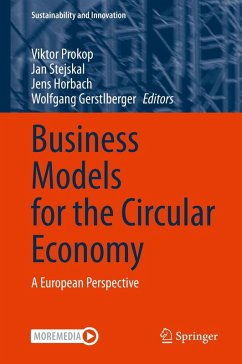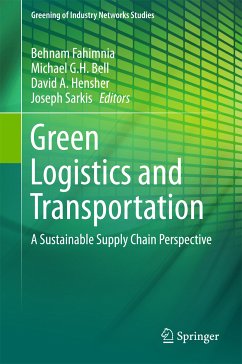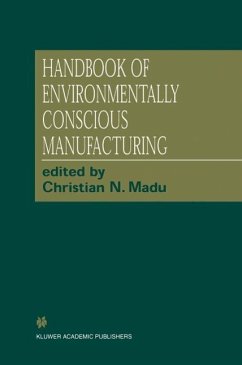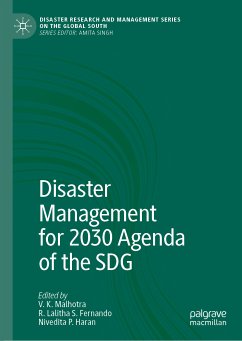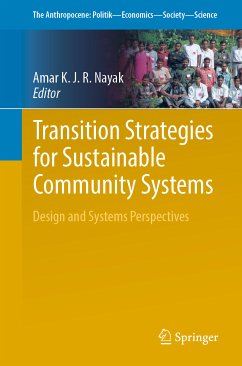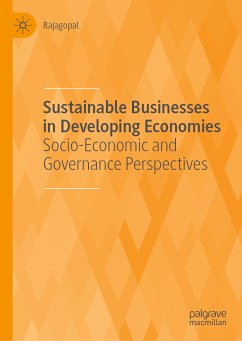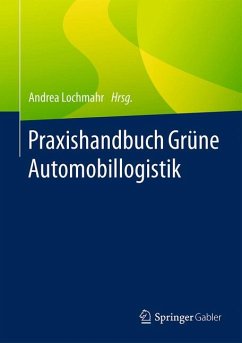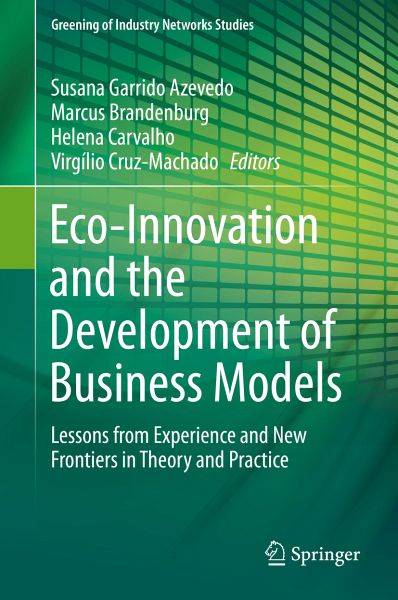
Eco-Innovation and the Development of Business Models (eBook, PDF)
Lessons from Experience and New Frontiers in Theory and Practice
Redaktion: Azevedo, Susana Garrido; Cruz-Machado, Virgílio; Carvalho, Helena; Brandenburg, Marcus
Versandkostenfrei!
Sofort per Download lieferbar
72,95 €
inkl. MwSt.
Weitere Ausgaben:

PAYBACK Punkte
36 °P sammeln!
Environmental challenges such as pollution, climate change, water and natural resources depletion and dwindling bio-diversity are true threats to the survival of our civilization, forcing us to learn how to act now. Fortunately this is exactly what this book does: presenting real life cases, along with theory, methodologies and tools demonstrating how eco-innovation can support sustainable economic growth and save our planet for future generations.Following an introduction describing developments and directions of eco-innovation, Section One discusses Models and Frameworks Supporting Eco-Innov...
Environmental challenges such as pollution, climate change, water and natural resources depletion and dwindling bio-diversity are true threats to the survival of our civilization, forcing us to learn how to act now. Fortunately this is exactly what this book does: presenting real life cases, along with theory, methodologies and tools demonstrating how eco-innovation can support sustainable economic growth and save our planet for future generations.
Following an introduction describing developments and directions of eco-innovation, Section One discusses Models and Frameworks Supporting Eco-Innovation, with chapters on search strategy for radical eco-innovation; and systematic eco-innovation with TRIZ Methodology. Section Two offers surveys and case studies showing eco-innovation in practice, including a sketch of the eco-innovative landscape in the Brazilian Cellulose, Paper and Paper Products Industry; efforts to eco-innovate among large Swedish companies; progress towards joint product-service business models and more. The third section surveys future directions and emerging trends, among them a new methodology for eco-friendly construction; the development of lightweight small inter-island ferries in Scandinavia and BioTRIZ: a win-win methodology for eco-innovation.
The book explores eco-innovation as a framework for supporting the development of new business models which consider the entire business ecosystem, on the way to a sustainable world. Moreover, it explores the eco-innovation process in cross-national and cross-sector perspective.
Following an introduction describing developments and directions of eco-innovation, Section One discusses Models and Frameworks Supporting Eco-Innovation, with chapters on search strategy for radical eco-innovation; and systematic eco-innovation with TRIZ Methodology. Section Two offers surveys and case studies showing eco-innovation in practice, including a sketch of the eco-innovative landscape in the Brazilian Cellulose, Paper and Paper Products Industry; efforts to eco-innovate among large Swedish companies; progress towards joint product-service business models and more. The third section surveys future directions and emerging trends, among them a new methodology for eco-friendly construction; the development of lightweight small inter-island ferries in Scandinavia and BioTRIZ: a win-win methodology for eco-innovation.
The book explores eco-innovation as a framework for supporting the development of new business models which consider the entire business ecosystem, on the way to a sustainable world. Moreover, it explores the eco-innovation process in cross-national and cross-sector perspective.
Dieser Download kann aus rechtlichen Gründen nur mit Rechnungsadresse in A, B, BG, CY, CZ, D, DK, EW, E, FIN, F, GR, HR, H, IRL, I, LT, L, LR, M, NL, PL, P, R, S, SLO, SK ausgeliefert werden.



